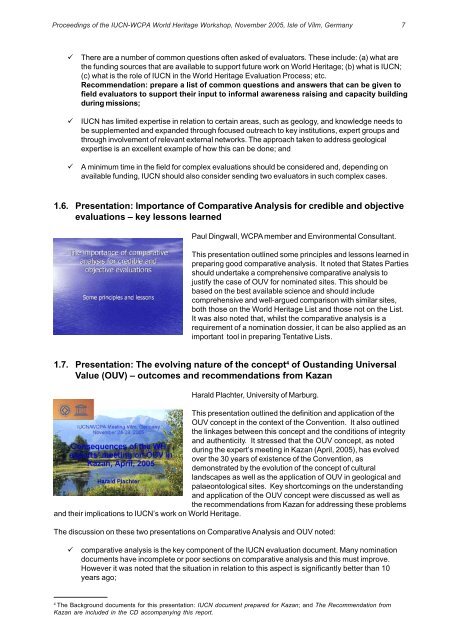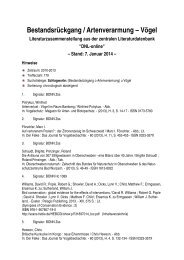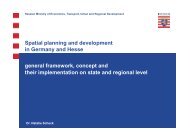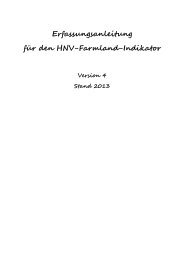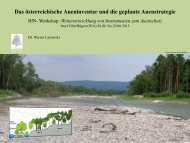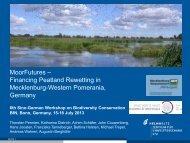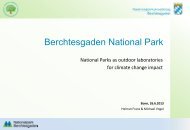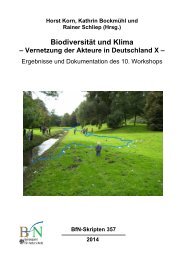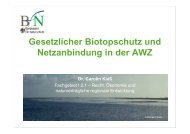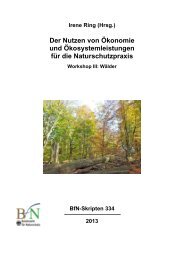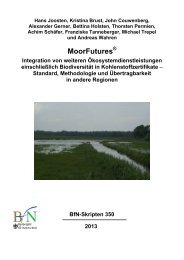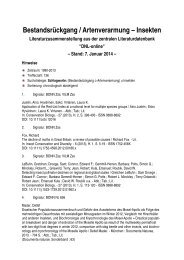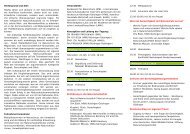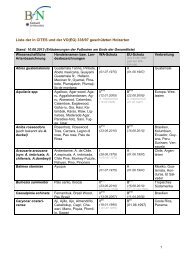Enhancing the IUCN Evaluation Process of World Heritage
Enhancing the IUCN Evaluation Process of World Heritage
Enhancing the IUCN Evaluation Process of World Heritage
You also want an ePaper? Increase the reach of your titles
YUMPU automatically turns print PDFs into web optimized ePapers that Google loves.
Proceedings <strong>of</strong> <strong>the</strong> <strong>IUCN</strong>-WCPA <strong>World</strong> <strong>Heritage</strong> Workshop, November 2005, Isle <strong>of</strong> Vilm, Germany 7<br />
There are a number <strong>of</strong> common questions <strong>of</strong>ten asked <strong>of</strong> evaluators. These include: (a) what are<br />
<strong>the</strong> funding sources that are available to support future work on <strong>World</strong> <strong>Heritage</strong>; (b) what is <strong>IUCN</strong>;<br />
(c) what is <strong>the</strong> role <strong>of</strong> <strong>IUCN</strong> in <strong>the</strong> <strong>World</strong> <strong>Heritage</strong> <strong>Evaluation</strong> <strong>Process</strong>; etc.<br />
Recommendation: prepare a list <strong>of</strong> common questions and answers that can be given to<br />
field evaluators to support <strong>the</strong>ir input to informal awareness raising and capacity building<br />
during missions;<br />
<strong>IUCN</strong> has limited expertise in relation to certain areas, such as geology, and knowledge needs to<br />
be supplemented and expanded through focused outreach to key institutions, expert groups and<br />
through involvement <strong>of</strong> relevant external networks. The approach taken to address geological<br />
expertise is an excellent example <strong>of</strong> how this can be done; and<br />
A minimum time in <strong>the</strong> field for complex evaluations should be considered and, depending on<br />
available funding, <strong>IUCN</strong> should also consider sending two evaluators in such complex cases.<br />
1.6. Presentation: Importance <strong>of</strong> Comparative Analysis for credible and objective<br />
evaluations – key lessons learned<br />
Paul Dingwall, WCPA member and Environmental Consultant.<br />
This presentation outlined some principles and lessons learned in<br />
preparing good comparative analysis. It noted that States Parties<br />
should undertake a comprehensive comparative analysis to<br />
justify <strong>the</strong> case <strong>of</strong> OUV for nominated sites. This should be<br />
based on <strong>the</strong> best available science and should include<br />
comprehensive and well-argued comparison with similar sites,<br />
both those on <strong>the</strong> <strong>World</strong> <strong>Heritage</strong> List and those not on <strong>the</strong> List.<br />
It was also noted that, whilst <strong>the</strong> comparative analysis is a<br />
requirement <strong>of</strong> a nomination dossier, it can be also applied as an<br />
important tool in preparing Tentative Lists.<br />
1.7. Presentation: The evolving nature <strong>of</strong> <strong>the</strong> concept 4 <strong>of</strong> Oustanding Universal<br />
Value (OUV) – outcomes and recommendations from Kazan<br />
Harald Plachter, University <strong>of</strong> Marburg.<br />
This presentation outlined <strong>the</strong> definition and application <strong>of</strong> <strong>the</strong><br />
OUV concept in <strong>the</strong> context <strong>of</strong> <strong>the</strong> Convention. It also outlined<br />
<strong>the</strong> linkages between this concept and <strong>the</strong> conditions <strong>of</strong> integrity<br />
and au<strong>the</strong>nticity. It stressed that <strong>the</strong> OUV concept, as noted<br />
during <strong>the</strong> expert’s meeting in Kazan (April, 2005), has evolved<br />
over <strong>the</strong> 30 years <strong>of</strong> existence <strong>of</strong> <strong>the</strong> Convention, as<br />
demonstrated by <strong>the</strong> evolution <strong>of</strong> <strong>the</strong> concept <strong>of</strong> cultural<br />
landscapes as well as <strong>the</strong> application <strong>of</strong> OUV in geological and<br />
palaeontological sites. Key shortcomings on <strong>the</strong> understanding<br />
and application <strong>of</strong> <strong>the</strong> OUV concept were discussed as well as<br />
<strong>the</strong> recommendations from Kazan for addressing <strong>the</strong>se problems<br />
and <strong>the</strong>ir implications to <strong>IUCN</strong>’s work on <strong>World</strong> <strong>Heritage</strong>.<br />
The discussion on <strong>the</strong>se two presentations on Comparative Analysis and OUV noted:<br />
comparative analysis is <strong>the</strong> key component <strong>of</strong> <strong>the</strong> <strong>IUCN</strong> evaluation document. Many nomination<br />
documents have incomplete or poor sections on comparative analysis and this must improve.<br />
However it was noted that <strong>the</strong> situation in relation to this aspect is significantly better than 10<br />
years ago;<br />
4 The Background documents for this presentation: <strong>IUCN</strong> document prepared for Kazan; and The Recommendation from<br />
Kazan are included in <strong>the</strong> CD accompanying this report.


